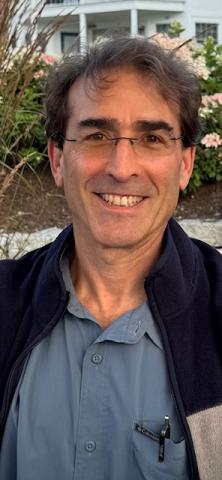By Richard LeComte

LEXINGTON, Ky. -- Leon Sachs’ background in teaching a class in civil discourse led him to a seminar in North Carolina, where he picked up some new ideas about how to foster civil discussion at the University of Kentucky. Now he wants to get the word out to draw people on the UK campus into safe places for open discussion.
"I would welcome other people interested in participating in civil discourse,” said Sachs, professor of French in the Department of Modern and Classical Languages and Literatures in UK’s College of Arts and Sciences and a Chellgren endowed professor. “It seems like UK's got people working on it, but they don't know about one another. There is an urgent need, I think, for people around campus to know who to contact if they want to get involved going forward.”
Sachs has developed and teaches a Lewis Honors College course on campus speech, free expression and civil discourse with support from the Chellgren Endowed Professorship. With partial support from the Chellgren Center, he participated this past summer in a national faculty seminar at the University of North Carolina’s School of Civic Life and Leadership, co-sponsored with Duke University’s Polis: Center for Politics.
At the University of Kentucky, Sachs and colleagues are working in the same spirit. In the Lewis Honors College and across campus, instructors are developing courses that invite students to practice listening, disagreement and democratic engagement as part of their education. These local efforts connect to a broader national movement, one that sees education for democracy as central to the university’s mission.
Sachs wants to help the campus community freely exchange ideas through a variety of techniques. Sometimes it’s best to start simply.
“We began by establishing as a guiding principle the statement, 'It if matters to you, it matters to me,'" Sachs said. “We then worked through several structured listening exercises in small groups: listening in silence, reiterating a story using only words used by our interlocutor and summarizing another's story in our own words. The topics of conversation were deliberately ordinary: Describe a favorite meal, recall an important lesson learned. At first I found these exercises frustrating, and I was eager to move to more substantive discussion of more complex topics.
“But the seemingly trivial conversations helped us observe our own conversational habits and develop feelings of trust and mutual respect among fellow participants. When we finally came to discuss our disagreements, which were often profound, we were able to do so in a spirit of good faith inquiry rather than distrust and suspicion.”
Many UK stakeholders across campus are committed to these causes, and the energy is growing, Sachs said, and a group of UK people is forming. People interested in getting involved or learning more may contact Sachs at leon.sachs@uky.edu.
